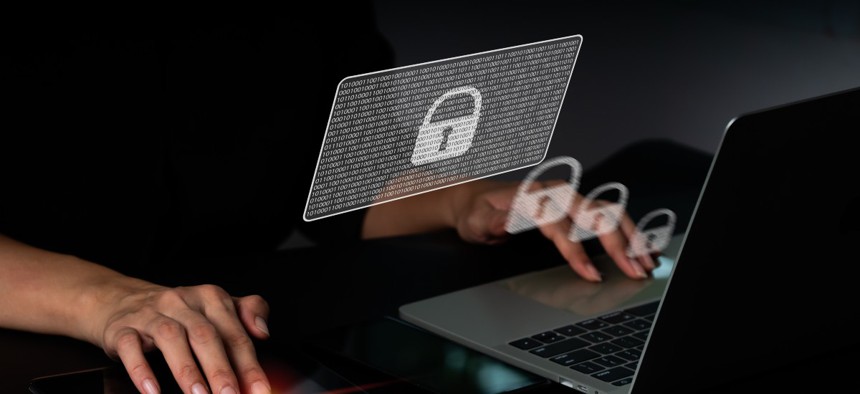CISA Leaning Toward Lower Threshold for Mandatory Cyber Incident Reporting

Umnat Seebuaphan/Getty Images
The agency has started to receive feedback from some key stakeholders for its rulemaking process on the issue.
Organizations should err on the side of reporting any cybersecurity incidents they experience to the Cybersecurity and Infrastructure Security Agency, even if they seem small or inconsequential, according to an agency official discussing a rule CISA must publish to implement the Cyber Incident Reporting for Critical Infrastructure Act.
“We want to be preventative, in as much as we can be preventative in this world,” CISA Chief Strategy Officer Valerie Cofield said. “In that sense, we do need to see everything, right, or as much as we can, because we don't know when that piece that we see today will be connected to something that we see tomorrow, and then, is that going to be a growing trend?”
Speaking Tuesday during an event hosted by the Center for Strategic and International Studies, Cofield said those considerations for implementing the law are similar to ones used in activating CISA’s “Shields Up” initiative.
“It was important … for us to make sure that we lowered the thresholds of when we would share information with each other, whether that was within the federal government or with the private sector,” she said. “We wanted to be able to make sure that we could have as complete a picture as possible … It's more that we need to have this ability to be able to ingest information at mission speed and analyze it and get it back out as soon as we can to our partners.”
Responding to high-profile incidents like the SolarWinds hack and the ransomware attack on Colonial Pipeline, Congress passed the law in March, making it mandatory for critical infrastructure entities to make timely reports of their incidents to the government, so that CISA could warn others and mitigate potential impacts across connected networks. But lawmakers left it largely up to CISA to determine which entities should be covered and what kinds of incidents should qualify for reporting.
CISA is required to collect and consider public comments before finalizing a rule under the law, and stakeholders have started to weigh in.
In an opinion piece The Hill published Wednesday, for example, Megan Stifel and Michael Daniel—two former cybersecurity officials from the Obama administration—argued “CISA should ... define significant cyber incidents to only encompass instances when real harm has occurred.”
Stifel and Daniel linked to comments they offered on the rulemaking in conjunction with others, including SolarWinds, the government IT vendor whose environment hackers leveraged their unauthorized access to in a campaign that proceeded to compromise at least nine federal agencies and a hundred U.S. companies.
The cascading SolarWinds event did not come to light until it was reported by cyber intelligence firm Mandiant, which was among the subsequent victims in the incident. The Securities and Exchange Commission is reportedly considering an enforcement action against SolarWinds in connection to the firm’s internal disclosure controls and procedures. And the company has indicated its willingness to pay $26 million to shareholders so they can settle a related lawsuit.
CISA should use a higher threshold for requiring incident reports in consideration of “the burden placed on organizations experiencing a cyber incident,” Stifel and Daniel wrote in The Hill op-ed.
But one major industry representative speaking at the CSIS event Tuesday was on the same page as CISA’s Cofield, advocating the lower reporting threshold.
“I actually don't think [CISA] should be thinking about materiality,” said Ron Green, executive vice president and chief security officer at Mastercard, adding that CISA should “lower the reporting thresholds.”
“Alone, [an incident] may mean nothing … but if [CISA] see it, perhaps it is something that's more systemic, more large scale. So materiality … I don't think that should be their focus. It's just getting as much information as they can, because then they can have a better picture of what's actually transpiring,” he said.






